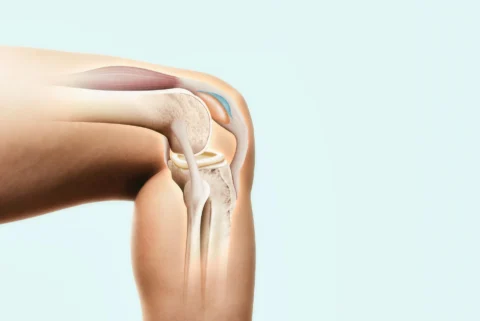Discover the real cost of stem cell therapy for knees and everything you need to know before making a decision.
Tired of your knees holding you back from living life to the fullest? Considering stem cell therapy but unsure about the cost? Look no further.
We’re about to dive into the nitty-gritty of stem cell therapy for knees, including the financial aspects that could potentially change the way you approach knee pain treatment.
Whether you’re seeking relief from arthritis or exploring alternative options to traditional knee treatments, this comprehensive guide will equip you with the information you need to make informed decisions about your health and well-being.
Is Stem Cell Therapy Effective for Treating Knee Arthritis?
Stem cell therapy is showing promising results as a potential treatment for knee arthritis. Studies indicate its potential to relieve pain and improve function for some patients.
Research suggests that autologous adipose-derived mesenchymal stem cell (ADMSC) therapy could be a safe and effective option, potentially delaying the need for total joint replacement.
Stem cell injections, particularly using a patient’s own adipose or umbilical tissue stem cells, have been found to effectively reduce pain and improve function for certain individuals.
While these therapies have mainly focused on pain relief and enhancing quality of life, ongoing research aims to explore their potential in repairing damaged cartilage.
However, it’s important to note that larger and longer-term studies are still needed to fully understand the efficacy and safety of stem cell therapy for knee arthritis.
Does Stem Cell Therapy for Knees Provide Long-Term Relief From Pain?
With the potential to provide long-term relief from knee pain, stem cell therapy offers hope for individuals seeking alternative treatments for osteoarthritis. However, the long-term efficacy of this treatment is still under investigation.
Here’s what you need to know:
- Some studies suggest that stem cell injections can lead to lasting clinical improvement for up to 2 years.
- Other research indicates that the relief provided by stem cell therapy may only be temporary, typically lasting a few months.
- Additional injections may be necessary to sustain the benefits over the long term.
- Ultimately, the long-term effects of stem cell therapy for knees depend on the individual and the specific treatment protocol.
While it holds promise, more evidence is needed to determine its effectiveness as a standalone long-term solution.
How Much Is Stem Cell Therapy for Knees?
Considering stem cell therapy for knees? The cost typically ranges from $3,000 to $8,000 per knee, depending on the clinic and treatment.
Here’s a breakdown of the average pricing for stem cell therapy for knees based on a survey of 65 clinics:
| Type of Treatment | Average Cost |
| Unilateral (One Knee) Stem Cell Injection | $5,156 |
| Bilateral (Both Knees) Stem Cell Therapy | $4,800 |
It’s important to note that Medicare does not cover the cost of stem cell therapy for knees. Patients usually need to pay out of pocket or utilize private insurance.
While stem cell therapy may be a more affordable alternative to knee replacement surgery, it’s essential to consider the effectiveness of the treatment.
Costs can vary significantly between different clinics, so it’s crucial to explore your options and check with your insurance to determine coverage.
Average Cost of Stem Cell Therapy for Knees
Looking to understand the average cost of receiving stem cell therapy for your knees?
- Stem cell injections for a single knee typically cost $3,000-$5,000.
- The mean cost reported by 65 stem cell therapy centers was $5,156 per knee.
Costs can vary significantly depending on location and specific clinic.
- Additional related procedures like platelet-rich plasma (PRP) injections average $707 per injection.
Keep in mind that insurance typically doesn’t cover the costs, as stem cell therapy is still considered experimental for knee treatments.
Overall, out-of-pocket costs, including follow-up care and potential multiple treatments, average around $4,000-$5,000.
Does My Insurance Plan Cover Stem Cell Therapy for Knee Osteoarthritis?
Did you know that most insurance plans don’t cover experimental stem cell therapies for knee osteoarthritis, including the ones used for stem cell therapy for knees?
Insurance coverage for stem cell therapy for knee osteoarthritis varies by plan and state regulations. Currently, major insurance carriers don’t cover experimental stem cell therapies as a treatment for knee osteoarthritis.
Medicare only covers FDA-approved stem cell transplants, not experimental therapies like those used to treat osteoarthritis.
Similarly, most private insurance plans, including those offered through employers, won’t cover experimental treatments they consider investigational. It’s important to note that some state health insurance regulations may also consider certain stem cell therapies for osteoarthritis as experimental and non-covered.
Therefore, it’s essential to check with your specific insurance plan to determine if stem cell therapy for your osteoarthritis is covered or not.
Is Stem Cell Therapy for Knees More Expensive Than Knee Replacement Surgery?
Wondering about the comparative costs of stem cell therapy for knees versus knee replacement surgery? Here’s a breakdown to help you weigh your options:
- Stem cell therapy for knees: Costs range from $4000-$6000 per treatment, but actual out-of-pocket expenses vary depending on insurance coverage and other factors.
- Knee replacement surgery: Total costs often reach $30,000-$50,000, factoring in facility fees, hardware, and postoperative care.
Keep in mind, initial research suggests stem cell therapy may provide pain relief for osteoarthritis and help avoid or delay knee replacement surgery.
However, knee replacement surgery offers a more proven treatment option, albeit involving a major surgical procedure. While stem cell therapy appears less expensive upfront, the long-term costs and outcomes for each option remain unclear.
Are There Risks Associated With Stem Cell Therapy for Knee Problems?
While stem cell therapy has shown promise in treating knee issues, it’s important to be aware of the potential risks. Short-term side effects like pain, swelling, bleeding, and infection at the injection site are common.
There’s a minimal risk of infection due to the minimally invasive nature of the procedure. Another risk is the potential for the stem cells to grow into tumors in the body. Although many studies have reported it to be safe and effective, it may not work for everyone.
However, when performed by trained medical professionals using the patient’s own stem cells, the risks are generally low. As with any medical procedure, it’s crucial to discuss the potential risks and benefits with your doctor before making a decision.
Are There Cheaper Alternatives To Stem Cell Therapy for Knee Pain?
Exploring alternative treatments for knee pain can be a practical consideration, especially when looking for cost-effective options after weighing the potential risks of stem cell therapy.
Cheaper alternatives to stem cell therapy for knee pain include:
- Platelet-rich plasma (PRP) injections
- Corticosteroid injections
- Physical therapy
- Over-the-counter pain medications
These options may provide relief at a lower cost compared to stem cell therapy. While they may not offer the same long-term benefits, they can be effective in managing knee pain.
It’s important to consult with a healthcare professional to determine the most suitable treatment based on individual circumstances.
If these alternatives don’t provide adequate relief, stem cell therapy might still be a worthwhile investment to avoid more invasive options such as knee replacement surgery.
Conclusion
Stem cell therapy for knees can be a costly but potentially effective option for those seeking relief from knee pain.
While the average cost may be high and insurance coverage may be limited, the long-term benefits and potential for avoiding surgery make it a compelling choice for many individuals.
It’s important to weigh the risks and consider alternative treatments, but stem cell therapy offers a promising solution for improving quality of life.











